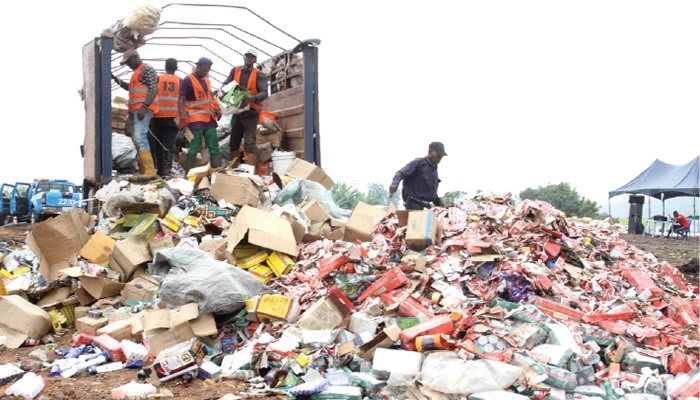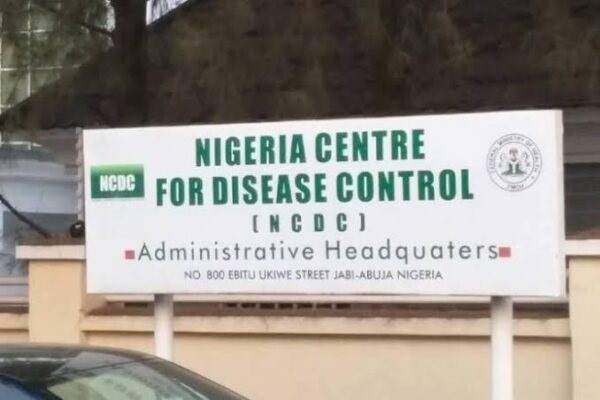The Federal Government says the ongoing establishment of Coordinated Wholesale Centres (CWCs) across Nigeria will significantly curb the circulation of fake, substandard, and expired medicines in the country.
Mr. Bulama Yakubu, Head of Drug and Vaccine Development and Drug Distribution System at the Federal Ministry of Health and Social Welfare, disclosed this on Tuesday in Abuja at a stakeholder meeting on the Promoting Accreditation for Community Health Services (PACS) project.
The meeting was themed: “Strengthening Private Sector Participation in Nigeria’s Health Market: Insights and Learning from PACS Project on Addressing Substandard and Falsified Medicines.”
Yakubu explained that CWCs would serve as centralised distribution hubs where drugs would only be sourced directly from certified manufacturers and importers. The centres, he noted, would incorporate stringent quality control systems and regulatory oversight mechanisms.
“With the CWCs, the sources of drugs will be known. Medicines will be moved from manufacturers to these centres, which will serve as the only point of wholesale distribution,” he said.
He further stated that each centre would house offices for the National Agency for Food and Drug Administration and Control (NAFDAC) and the Pharmacy Council of Nigeria (PCN), as well as quality assurance laboratories and police outposts to ensure safety and regulatory compliance.
“When established nationwide, substandard and expired drugs will become a thing of the past,” he added.
Progress Across States
Yakubu cited positive developments in states such as Anambra, Kano, Ogun, and Lagos, noting that the Kano open drug market was successfully relocated to a newly commissioned wholesale centre in February 2024. He also mentioned that Ebonyi, Imo, and Oyo states had submitted applications to establish their own CWCs.
However, he identified several challenges undermining Nigeria’s drug distribution system, including the proliferation of open drug markets, poor coordination among stakeholders, political interference, and weak leadership.
To address these issues, Yakubu stressed the need for full implementation of the National Drug Distribution Guidelines (NDDGs), which advocate for the establishment of State Drug Distribution Centres (SDDCs) by state governments and Mega Drug Distribution Centres (MDDCs) by private investors.
“The ultimate goal is to ensure that all medicines in circulation are efficacious, affordable, and of high quality,” he stated.
PACS Project Impact
Also speaking, Dr. Omokhudu Idogho, Managing Director of the Society for Family Health (SFH), highlighted the impact of the PACS project, describing it as “proof of concept” for how trained and accredited community pharmacists and Patent and Proprietary Medicine Vendors (PPMVs) can effectively deliver quality healthcare.
“PACS has shown that when supply chains are digitised, provider accreditation is strengthened, and procurement aligns with verified sources, the result is a significant reduction in substandard and falsified medicines,” he said.
He called for the national adoption of PACS findings and the integration of its lessons into public health policy frameworks.
Improving Family Planning Access
Mrs. Iyadunni Olubode, Country Director for MSD for Mothers in Nigeria and Kenya, said her organisation’s support for the PACS project was driven by its commitment to improving access to family planning commodities, particularly in underserved areas.
“Community pharmacists and PPMVs play a crucial role in providing reproductive health services. Improving the quality of drugs they dispense could reduce maternal mortality by up to one-third,” she stated.
She noted that one of PACS’ key findings was that drug quality improved significantly when PPMVs sourced commodities through transparent supply chains.
Sustaining Reform
Mr. Ibrahim Ahmed, Registrar of the Pharmacy Council of Nigeria (PCN), represented by Dr. Taiwo Filusi, the council’s Lagos Zonal Officer, commended efforts to relocate open drug markets and establish state-level drug management agencies.
While acknowledging the slow pace of progress, Filusi said the council prioritised creating sustainable and enduring systems over short-term solutions.
The News Agency of Nigeria (NAN) reports that PACS is a two-year initiative under the MSD for Mothers programme, implemented by a consortium led by the Solina Centre for International Development and Research (SCIDaR) and SFH.
The project aimed to strengthen the PCN accreditation framework through three main incentive mechanisms: access to finance, quality-assured commodities, and branding. Its overarching objective is to enhance the availability and quality of family planning and primary healthcare services at the community level.





